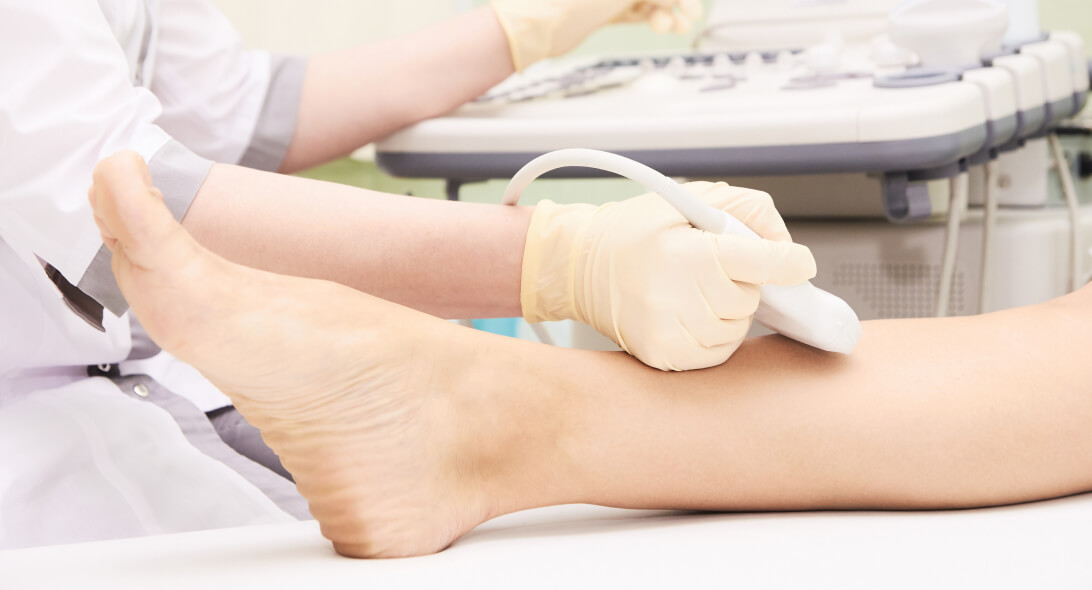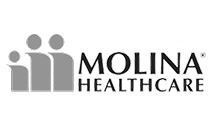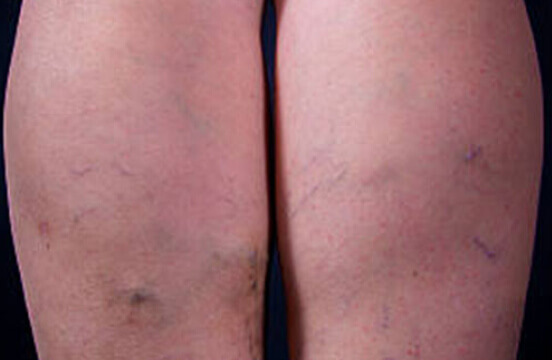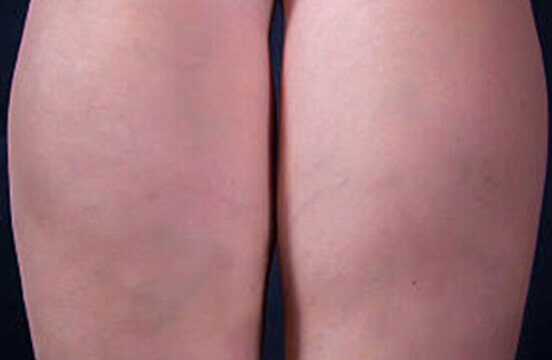High-Quality Vein Care at Suburban Vein Center
At Suburban Vein Center, our Michigan vein doctor utilizes noninvasive and safe methods for diagnosing venous conditions. If you’re experiencing swelling in the legs, aching legs, or other painful symptoms, contact our Michigan office today. Dr. Zmily uses vascular ultrasound studies to evaluate the blood circulation of your vessels and provide you with a diagnosis and custom treatment based on your needs.
What Are Vascular Ultrasound Studies?
Vascular ultrasound studies are noninvasive methods used to evaluate the blood circulation of vessels in the body. They can be used to examine arteries or veins in nearly every part of the body, and more importantly, they help detect blockages, such as blood clots. Vascular ultrasounds use no radiation exposure, so patients won’t need to worry about harmful side effects. It requires little to no special preparation and ultimately provides images of soft tissues that don’t appear on x-ray images.

How Does it Work?
Vascular studies use high-frequency sound waves (ultrasound) to measure the amount of blood flow in your blood vessels. A small transducer (probe) and ultrasound gel are placed directly on the skin to create high-frequency sound waves that will be used to create an image that shows up on the computer screen. The images are captured in real-time, thus giving the most accurate depiction of the movement of the body’s organs and blood vessels. Generally, this procedure takes between 30 to 45 minutes.
Common Uses of Vascular Ultrasound Studies
A vascular ultrasound study may be performed to:
- Identify blockages (stenosis) and abnormalities
- Detect blood clots
- Evaluate varicose veins
- Determine where a patient is a good candidate for other procedures
- Evaluate the success of other procedures
- Help monitor blood flow to organs and tissues
Types of Vascular Studies
There are a few types of vascular studies that can be performed. The tests you’ll go through will depend on your symptoms and what Dr. Zmily thinks your vascular problem may be. Types of vascular studies include:
- Pulse Volume Recording (PVR) Study: Performed to assess blood flow in the arms or legs. Blood pressure cuffs will be inflated on the arm or leg, and the blood pressure in that specific part of your body is measured using the Dopler probe.
- Carotid Duplex Scan: This checks the carotid arteries in the neck. It gives 2D images of the arteries — showing their structure, the blocked area, and how well the blood is flowing.
- Carotid Artery Duplex Scan: This can check for blockages or narrowing (stenosis) of the carotid arteries in the neck. It can also check the branches of the carotid artery.
Frequently Asked Questions
Vascular ultrasound studies are safe and painless, presenting minimal risks. However, certain factors may interfere with the vascular study. These include:
- Severe obesity
- Smoking within an hour of your test (smoking causes blood vessels to tighten or constrict)
- Irregular heart rhythms
- Heart disease
Vascular ultrasounds are noninvasive tests used to show healthcare providers the blood flow in arteries and veins in the arms, legs, and neck. These tests are used to diagnose blood clots, narrowed blood vessels, and other vascular health conditions.
There are various symptoms you may experience that could indicate the need for a vascular ultrasound study. Common symptoms of venous diseases include:
- Enlarged, swollen, or knotted clusters of purple veins
- Swelling in the legs
- Aching legs
- A sensation of heaviness in the legs
- Skin discoloration
- Ulcers in the inner aspect of the ankles
Schedule Your Appointment With Our Michigan Vein Specialist
Have you been dealing with painful symptoms associated with venous diseases? At Suburban Vein Center, our Michigan vein specialist utilizes noninvasive tests to ensure proper diagnoses. To schedule your appointment with Dr. Zmily, call our practice today at (248) 480-0368. You can also request more information by filling out our online contact form.
For our patient’s convenience, we have four locations throughout Michigan including, Troy, Detroit, Rochester, and Taylor.




















